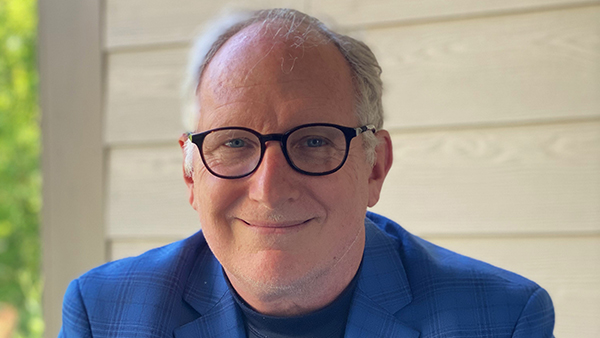By Grace Thornton
The Alabama Baptist
David Johnson says he has a “really terrible singing voice.”
But as he sat recently in UAB Hospital at the bedside of a patient in his final moments — a patient who was unable to communicate his wishes — Johnson tried to think of what he would want someone to do for him as he was dying.
And he sang.
“I had the freedom to do what I wanted in that moment,” said Johnson, a UAB Hospital chaplain and member of Riverchase Baptist Church, Birmingham. “If it were me, I would want to know there was someone there who loved me.”
The possibility of dying alone has been a sobering part of the COVID-19 crisis as the death toll has climbed and the stories have spread of families not being able to be at their loved ones’ bedsides.
That goes for patients who are dying of coronavirus — and some who aren’t.
Same story, different ways
“As a result of COVID-19, no visitors are allowed unless someone is dying,” Johnson said.
He’s not sure if the patient he sat with had coronavirus or not — all he knew was that the patient’s family was either sick themselves or too high risk to be at the hospital and at his bedside.
It’s a story he sees over and over in different ways.
“A couple of weeks ago [in front of the hospital], I met the son and daughter of a COVID-19 patient who was dying … and I took them up to MICU (medical intensive care unit),” Johnson said.
“They were only allowed to see their mother through a glass for their own protection,” he said. “If patients are conscious, they can speak on a phone. It’s so tough for the families.”
One way hospital staff members all over have stepped into the gap is by spending those final moments with dying patients who are unable to have family members present. Johnson said getting to sit with patients as they die has been a privilege.
‘Precious time’
“I know each person I sit with has had a meaningful life and people who care about them,” he said. “It’s an honor to feel like you’re able to represent family who can’t be there and wants to be there with them.”
Before Johnson became an emergency room chaplain three years ago, he and his wife, Claudia, served 28 years as missionaries to Thailand. But even with that experience and its ups and downs, the sobering parts of hospital ministry cut straight to his heart.
“There were a lot of tears during that first year of residency,” he said.
And now with a pandemic in play, the stakes somehow seem even higher — not only to him but to the people around him.
“If patients are in the hospital right now, it’s serious,” Johnson said. “There’s this sense that this is a serious thing we’re dealing with. I feel like I’ve connected with the staff a lot more. We talk a lot about issues now that we might not have before.”
He typically works the overnight shift on Saturday and Sunday nights, and when things are slower in the wee hours of the morning, weighty conversations can happen, he said.
As the crisis has continued, he’s been more vulnerable with hospital staff, and they’ve been more vulnerable with him too.
“It’s been a precious time. My prayers going in are different every day than they were before,” Johnson said. “God is here, in everything He’s here, and I feel that — I do.”






Share with others: